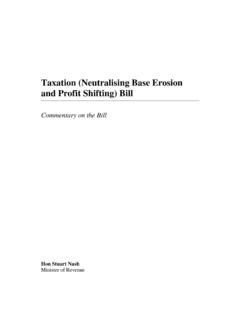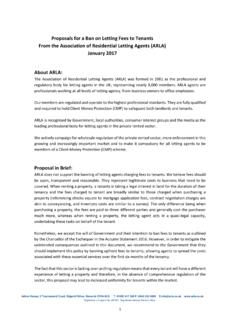Transcription of A Review of TITAN THE LIFE OF JOHN D. ROCKEFELLER, SR ...
1 5 A Review of TITAN THE LIFE OF JOHN D. ROCKEFELLER, SR. by Ron Chernow Reviewed by Michael Lee INTRODUCTION John D. Rockefeller, Sr. is remembered as one of the foremost capitalists in American history. Recalling some of the great names from the turn of this century - Andrew Carnegie, Morgan, William Hearst and Henry Ford - the name Rockefeller is always required to complete the roll call. Rockefeller, in his lifetime, was both the most admired and most hated businessman in America. Considered one of the Great Robber Barons, the name Rockefeller has changed from very negative connotations at the turn of this century to a mostly positive one by the end of it. The John D. Rockefeller, Sr. story is really the story of the American oil industry. From an unused commodity in the early 1800's to the major global economic industry it is today, the story of oil is the story of Standard Oil and a man named Rockefeller. It continues to this day.
2 John D. Rockefeller not only created Standard Oil, which was the largest business empire on earth, he formed the most extensive empire of philanthropy in existence including the University of Chicago, Spelman College, Rockefeller University, the Museum of Modern Art, The Cloisters, and the Rockefeller Foundation. The fascination with Rockefeller is that his account reveals one of the most ruthless and relentless business personae of all time matched by one of the most forward thinking philanthropic minds the world has ever seen. The oil rush of the 1860's is comparable to the California Gold Rush or even the internet technology explosion of today. People flood to the geographic area of riches and cast their die in the new crap shoot. Huge fortunes were quickly made and lost. The newly discovered treasure brought out the best and worst in people. JOURNAL OF BUSINESS LEADERSHIP - 2000-2001 6 Boom is too quickly followed by bust, and wealth can be gained, lost, or stolen.
3 From this rough and tumble environment the genteel, quiet and reserved Rockefeller forged a global monopoly and created personal wealth that may never be exceeded. What is meant here is that Rockefeller's personal wealth was estimated in 1917 to be of the gross national product. His fortune was estimated at between nine hundred million and one billion dollars. The entire federal budget in 1917 was seven hundred and fifteen million dollars. Rockefeller could have personally funded the government for a year with a huge sum left over. Today, even Bill Gates' enormous worth is only about one half of one percent of gross national product. All this to say, John D. Rockefeller may long reign as the richest man in American history. ENVIRONMENTAL HIGHLIGHTS One can not minimize the environmental changes that occurred, in the precise correct order, at the precisely correct time that allowed Rockefeller to create an industry. It was an exciting time in America.
4 For Standard Oil to become a reality, two technological changes had to occur and two other industries had to blossom, all in convergence and one logistical item had to fall into place to create the opportunity Rockefeller needed to build his enterprise. All of these transpired in the shadow of the greatest era of American war casualties, the Civil War. The second great religious awakening in the United States is stated to have begun in the early 1800's and the dichotomous mode in the land was one of great religious zeal coupled with unparalleled economic expansion. Two great changes were occurring in the modernization of America. One was the growth of the transportation industry in general and railroads in particular. The second and perhaps the most significant change that would impact young Rockefeller was much more domestic than one might guess. It was the growing need for lighting, or as it was termed at the time, illumination.
5 Michael Lee 7 In the growing United States many individuals were seeking new and less expensive ways to illuminate their homes and businesses. Rural families were looking for ways to extend their activities beyond the short days of winter and as with many other technologies, once people were exposed to lighting in larger cities they wanted it for themselves. Chemists had learned to extract kerosene from oil with sulphuric acid. This was done in a fairly small still-like apparatus. Kerosene was found to have great potential in lighting which had heretofore been dominated with products like whale oil, alcohol, and another petroleum derivative camphene. These were all quite expensive and relatively scarce. In Rockefeller's youth camphene sold for 88 a gallon. This purchase price was something he never forgot. Until the discovery of the refining process which produced kerosene, oil was mostly considered a nuisance.
6 Oil was extremely abundant in parts of Western Pennsylvania. It was even naturally polluting some creeks and small rivers. It was used in medicines sold by traveling salesmen that were orally ingested. Others used it as a component in lotions with supposed healing properties. For years it was not perceived as having much, if any, commercial value. The first real oil strike is credited to Colonel Edwin Drake in Titusville, Pennsylvania in 1859. This was not truly the first oil to be found but was the first resource tap thought to be renewable. Much like the technology discoveries of today, this created a wild surge of entrepreneurship. In Pit Hole, Pennsylvania, for example, a farm sold for two million dollars in 1865 for the oil found there. The same farm, thirteen years later with oil deposits exhausted, sold for four dollars and thirty-seven cents. The early days of oil were classic boom or bust. The hunt to find oil reserves for the creation of kerosene was on and much like the Pioneer Seed story, others began to tell John D.
7 About this exciting development. Rockefeller was in the produce brokerage business in Cleveland, Ohio at the time and did JOURNAL OF BUSINESS LEADERSHIP - 2000-2001 8 not seem to be the one who would become the champion and largest player in this burgeoning business. Rockefeller was not initially overtaken with the prospects of the oil business. Wells would dry up. Fires caused severe damage and panic in the industry. Almost as much oil was lost in transporting it as was extracted from the ground. It appeared to be a very high risk endeavor; not one that was especially appealing for the conservative Rockefeller. One of the chemists involved in the use of kerosene extraction, Samuel Andrews, enticed John D. into the oil business as a side venture in 1865. This first foray into the oil business was registered as Rockefeller and Andrews. By 1870 Rockefeller would be a multi-millionaire. The Rockefeller fortune and the tremendous story of Standard Oil might never be known, however, if not for the growing technology used by the railroads.
8 This parallel industry on the same exponential growth pattern at the same time as kerosene development saved the day. If Rockefeller would not have had competing rail companies and water transportation modes available he would not have achieved his tremendous success. We will discuss more about his pivotal use of transportation in creating a unique competitive advantage later. Suffice it to say for now, Rockefeller quickly concluded transportation of product was the critical differentiation between successful and non-successful ventures in the refining business. Like a tornado in the night, another environmental change occurred that could have easily bankrupt Rockefeller. The invention of electrical illumination. Consider the impact of electricity on the kerosene market. Much like the buggy whip manufacturers during the birth of the automobile, technology emerged that could eliminate the need for kerosene almost overnight.
9 Edison's discovery of the light bulb was a huge threat to the oil refining business. Electricity was found to be more cost effective and less dangerous than the use of kerosene lamps. It was also a replenishable resource without any chemical handling. The electrification of America was an apparent threat to John D. and he could have seen his dynasty collapse Michael Lee 9 nearly right in front of his eyes. Personally, he would still have easily survived financially but he would not have become the TITAN we know today. As if by providence, another technology saved the day-the automobile. The decision to power the new concept of individual modes of transportation, the great dream of Henry Ford and others, by the internal combustion engine was pivotal to Rockefeller's success. Oil could be distilled to kerosene but it could also be refined into gasoline.
10 The automobile exploded onto the scene creating a huge demand for gasoline that continues to this day. Disaster was averted and an empire nearly lost, flourished. The impact of the Civil War can not be excluded in any conversation regarding the major environmental changes affecting this story. The war itself created the need for the type of commodities that initiated Rockefeller into the world of commerce. The end of the Civil War created a climate of expansion probably very similar to what we remember of the post World War II days. There was a work force weary of combat now interested in creating some wealth of their own and instilled with a certain work ethic from their military experience. Men returning from the war understood taking orders, working in groups and dealing with dangerous situations. These men were ripe to work in the rugged conditions in the oil fields. It is difficult for us in modern society to try and relate to the times of a conflict within our own borders but the country was certainly weary of loss and ready to be engaged in economic activity at a near fever pitch.



